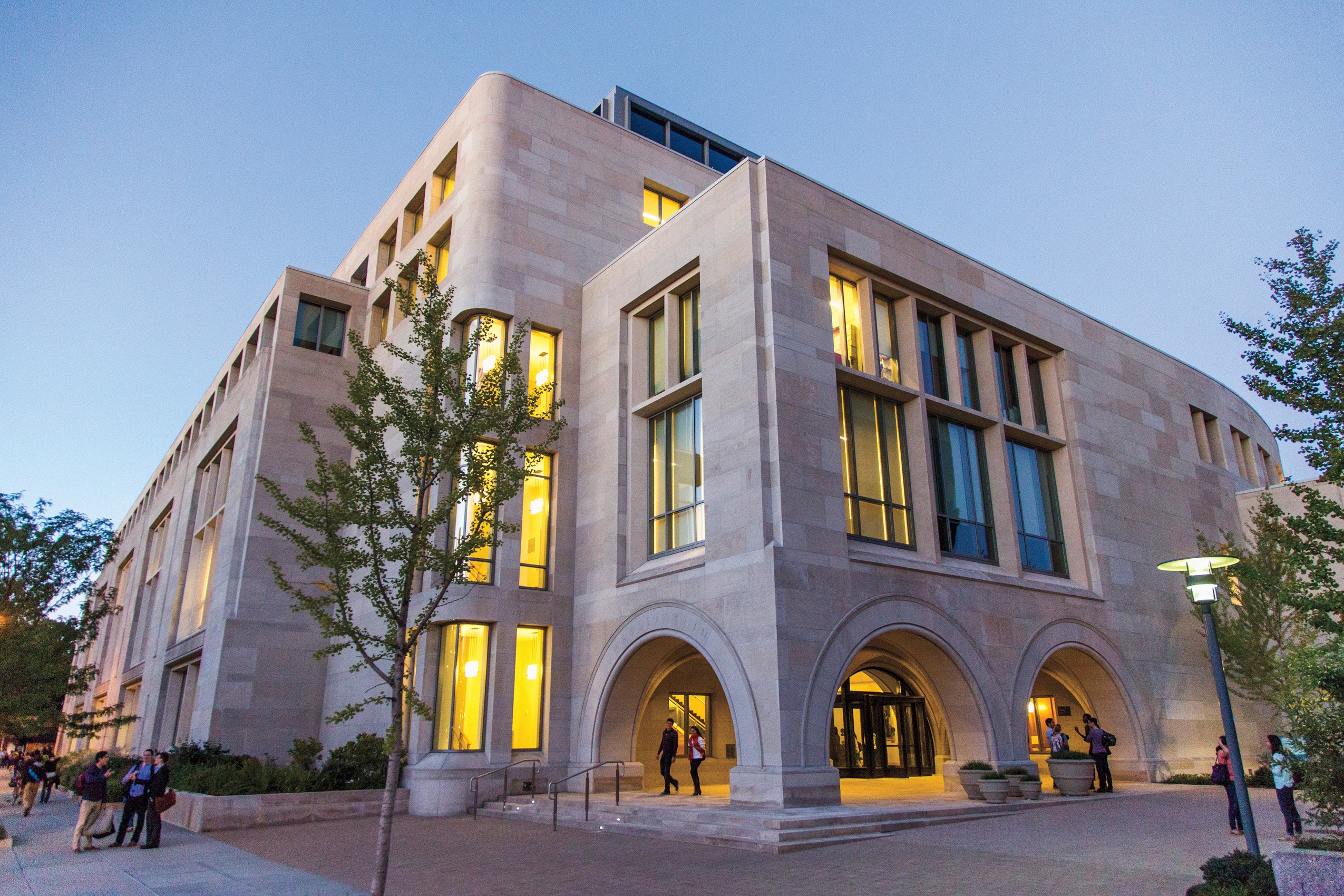For the first time in its history, the Harvard Journal of Law and Public Policy has added an online component. The new venture, to be called JLPP: Per Curiam, launched at the end of August with an online symposium highlighting Justice Clarence Thomas’s 30th anniversary on the Supreme Court. The inaugural content features essays and interviews with prominent former law clerks of Justice Thomas, including numerous Harvard Law School alumni.
The online format will allow for a more robust and immediate legal conversation, explained the Journal’s editor-in-chief, Eli Nachmany ’22, and Per Curiam director Alexander Khan ’22. “Launching Per Curiam will give us the opportunity to have more of a day-to-day impact on important conversations about law and public policy,” Nachmany said. “When I ran for editor-in-chief this past year, one of the key aspects of my platform was to launch an online component. And one of the first things I did was put Alexander in charge of it.”
Added Khan, “I wanted it to be a place that could still have the strong legal writing and scholarship that the JLPP print edition is known for. We’re going to be publishing longer law review articles, but I also wanted it to be a place that could present cutting edge legal research, quick opinion pieces or thoughts on cases that had come down the day before. We wanted to make this a mix of long and shorter pieces, allowing these authors to write in and discuss on topics that are immediately relevant to a readership and to the larger legal community.”
Both name the Thomas symposium as an example of the wide-ranging scholarship that the online format offers. The package includes personal reflections along with examinations of Thomas’ legal impact, contributed largely by judges who have clerked for him.
Judge Gregory G. Katsas ’89 of the U.S. Court of Appeals for the District of Columbia discusses that experience in his foreword. There are also essays by Judge Gregory E. Maggs ’88 of the U.S. Court of Appeals for the Armed Forces (on Thomas and stare decisis), Judge James Ho of the U.S. Court of Appeals for the 5th Circuit (on Thomas’ “judging based on law,” even when the law may dictate an unpopular decision), and by Harvard Law School lecturers Margaret Ryan and Liam Hardy, on Thomas and criminal procedure. Both Ryan and Hardy serve as judges on the U.S. Court of Appeals for the Armed Forces. Video interviewees include Carrie Severino ’04, chief counsel of the Judicial Crisis Network, who speaks on her own experience clerking for Justice Thomas.
Khan says one major theme comes through all the different pieces. “It’s the idea of fortitude, his willingness to truly take a look at a case — to ask what the Constitution actually requires of us and to do the work, in the face of criticism on hot-button issues, to write an opinion based on that conclusion.”
“When you’re able to get clerks from somebody who’s served on the Court for this long, you really can find a dizzying array of topics with which they can speak with some level of fluency. There’s everything from Judge Neomi Rao, writing about administrative law, to Judge David Stras talking about Justice Thomas and the First Amendment,” Nachmany said. “I hope that over the years, as scholars, commentators and others reflect on his legacy, they can return to the essays and interviews that we put forth in this symposium to think about what kind of justice, and what kind of man Justice Thomas was.”
While they don’t have another major symposium planned just yet, both look forward to producing a range of new content. That can also include ideas from outside the conservative mainstream, Khan adds. “We’ll have discussion within the right-of-center legal community, but even if somebody wants to comment from outside of that, that’s completely open to them. We want a piece that presents an idea, and we want feedback from other authors, students, law professors, policy professionals, and judges. That’s what it is, a place for true discussion on important current legal topics.”
“To my mind, this is a tremendously important moment in JLPP history,” Nachmany said. “We’re not just rolling out a new volume, but a statement of how we are going to approach the journal for the next 50, 100 years. The print edition will remain, and we will continue to publish three issues a year of highly relevant, rigorous legal scholarship. But think it’s one of those moments in time that folks can look back to and say, ‘2021 — that was the year they launched Per Curiam.”
